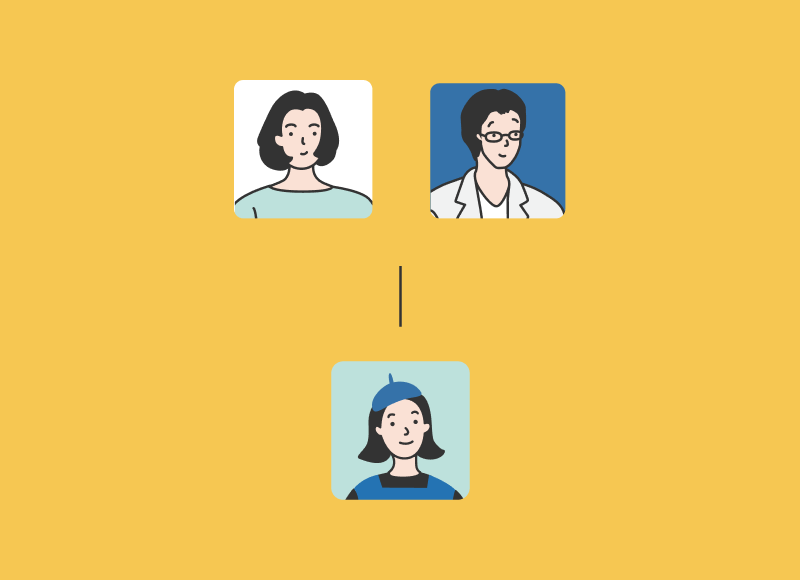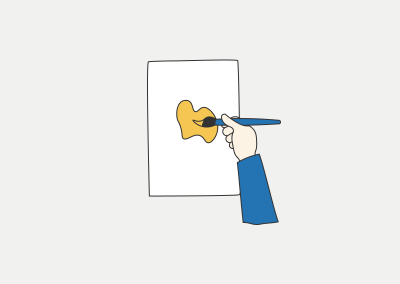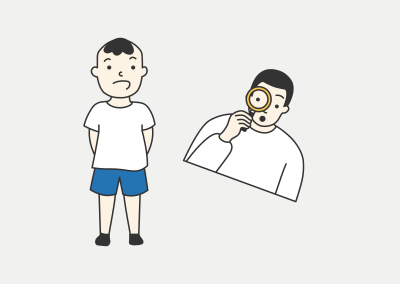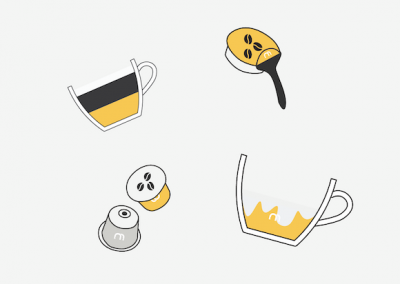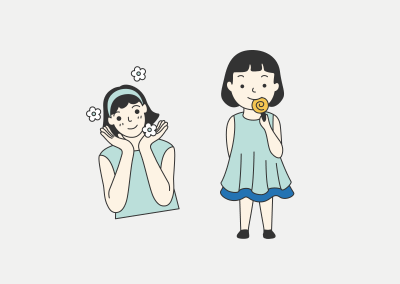A Guide to the Chinese Family Tree: Understanding Family Titles & Relationships
The Chinese family tree may seem at first with its many specific terms for different family members and relationships but don’t worry we’ve got you covered! This guide will help you the 家谱 (jiāpǔ), or Chinese family tree making it easier to understand how Chinese families are and why these matter in Chinese culture 👫
Why is the Chinese Family Tree So Complex?
Unlike Western family tree structures where “uncle” and “aunt” are broad terms, the Chinese family tree titles depending on age relation. These reflect the importance of respect in Chinese society.
Key Terms in the Chinese Family Tree
To start, let’s learn how to say “family” in Chinese.
Common Chinese Family Terms:

家庭
jiātíng
family; household
家人
jiārén
family member
亲戚
qīnqi
relatives
How to Talk About Your Family in Chinese
To mention how many people are in your family, you can say:
我家有······口人。
Wǒ jiā yǒu······kǒu rén.
There are……people in my family.
The character “口” (kǒu) is a measure word used to count people in a family.
01. Immediate Family
1. Parents | Chinese Family Terms & Vocabulary
Now let’s explore immediate family members starting with parents (父母 fùmǔ) in Chinese family vocabulary.
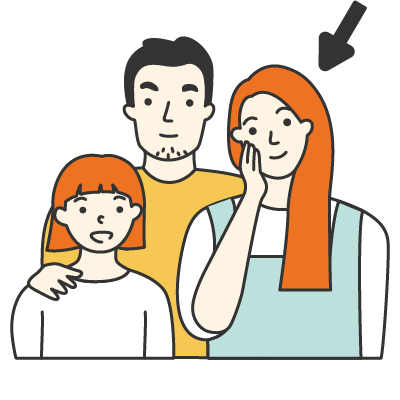
母亲
mǔqīn
mother
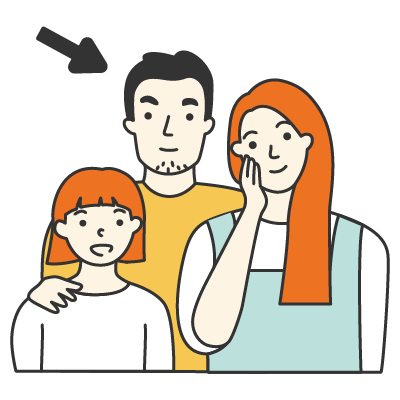
父亲
fùqīn
father
NOTE
These are formal terms for parents most children use the more common and affectionate terms:
爸爸 (bàba) – dad
妈妈 (māma) – mom
2. Siblings | Chinese Family Terms and Vocabulary
Now let’s explore how to say siblings (兄弟姐妹 xiōngdì jiěmèi) in Chinese family vocabulary.
Common Chinese Terms for Siblings:

哥哥
gēge
elder brother

弟弟
dìdi
younger brother
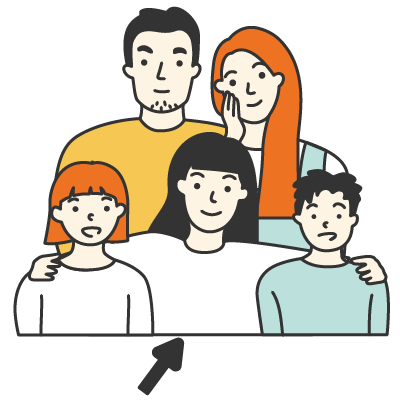
姐姐
jiějie
elder sister

妹妹
mèimei
younger sister
NOTE
In Mandarin Chinese birth order is important and these terms specifically indicate older or younger siblings.
3. Grandparents | Chinese Family Terms & Vocabulary
Here are the Chinese names for grandparents (祖父母 zǔfùmǔ) based on paternal and maternal sides.
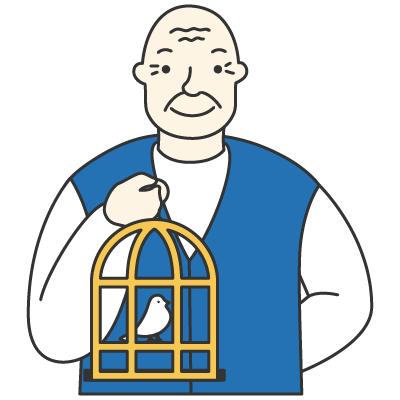
爷爷
yéye
grandfather (father’s side)
外公
wàigōng
grandfather (mother’s side)
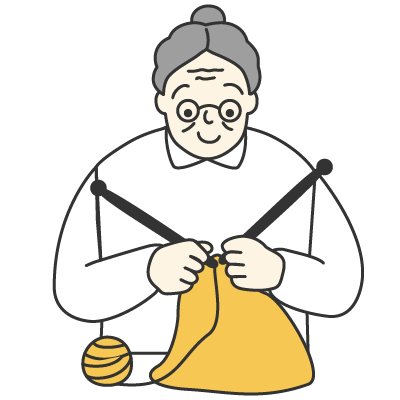
奶奶
nǎinai
grandmother (father’s side)
外婆
wàipó
grandmother (mother’s side)
NOTE
In Mandarin Chinese it’s important to distinguish between paternal (father’s side) and maternal (mother’s side) grandparents.
02. Your Own Family | Chinese Family Terms
When you have your own family here are the terms used to address your partner children and relatives in Mandarin.
01. Wife and Husband (夫妻 fūqī)
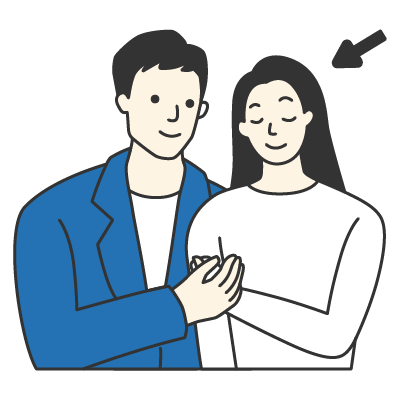
妻子
qīzi
wife

丈夫
zhàngfu
husband
NOTE
In informal settings, you can use 老婆 (lǎopó) for “wife” and 老公 (lǎogōng) for “husband.”
02. Children (孩子 háizi)
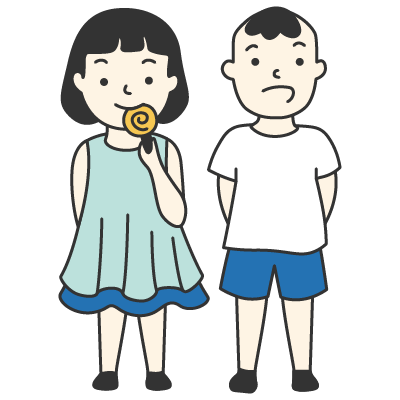
孩子
háizi
children
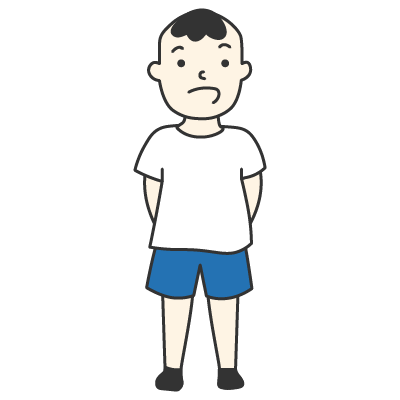
儿子
érzi
son
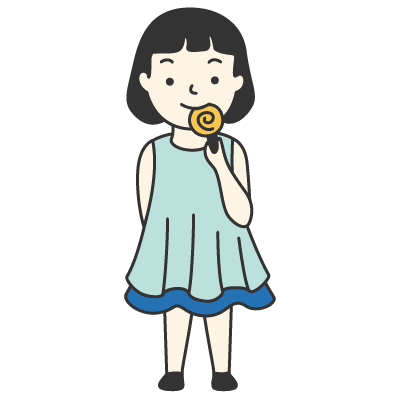
女儿
nǚ’ér
daughter
03. Other Relatives
Now, let’s level up and learn how to address other family relatives.
01. Uncle

伯伯
bóbo
father’s older brother
叔叔
shūshu
father’s younger brother
舅舅
jiùjiu
mother’s brother
🤓 The terms for maternal uncles remain the same regardless of age.
02. Aunt
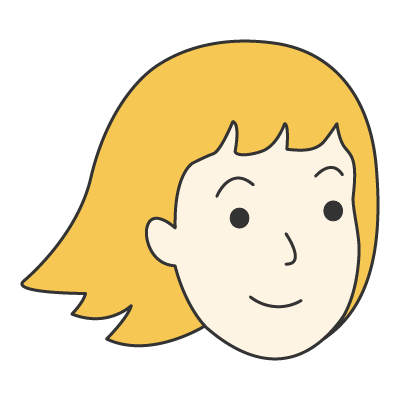
姑姑
gūgu
father’s sister
姨
yí
mother’s sister
03. Cousins
As for other family relatives, the terms for cousins vary based on the side of the family:
🧔Father’s side:
堂兄 (tángxiōng) – elder male cousin
堂弟 (tángdì) – younger male cousin
堂姐 (tángjiě) – elder female cousin
堂妹 (tángmèi) – younger female cousin
👩🦰Mother’s side:
表兄 (biǎoxiōng) – elder male cousin
表弟 (biǎodì) – younger male cousin
表姐 (biǎojiě) – elder female cousin
表妹 (biǎomèi) – younger female cousin
Bonus: Chinese Family Tree Calculator
Easily determine family relationships with a Chinese Family Tree Calculator — find out the correct term for any family member in just a few clicks!
| Chinese Family Tree Calculator
How to Address Relatives in Chinese Culture
In China addressing family members correctly is showing respect. Unlike Western cultures where first names are commonly used Chinese traditions familial for example younger individuals must address older relatives with their proper title never by their first name.
Modern Changes in Family Addressing
While traditional family terms are still used, modern Chinese families are adopting simpler terms. Younger generations may use 爸爸 (bàba) and 妈妈 (māma) for parents and even adopt informal terms like 叔叔 (shūshu) for any older male figure.

